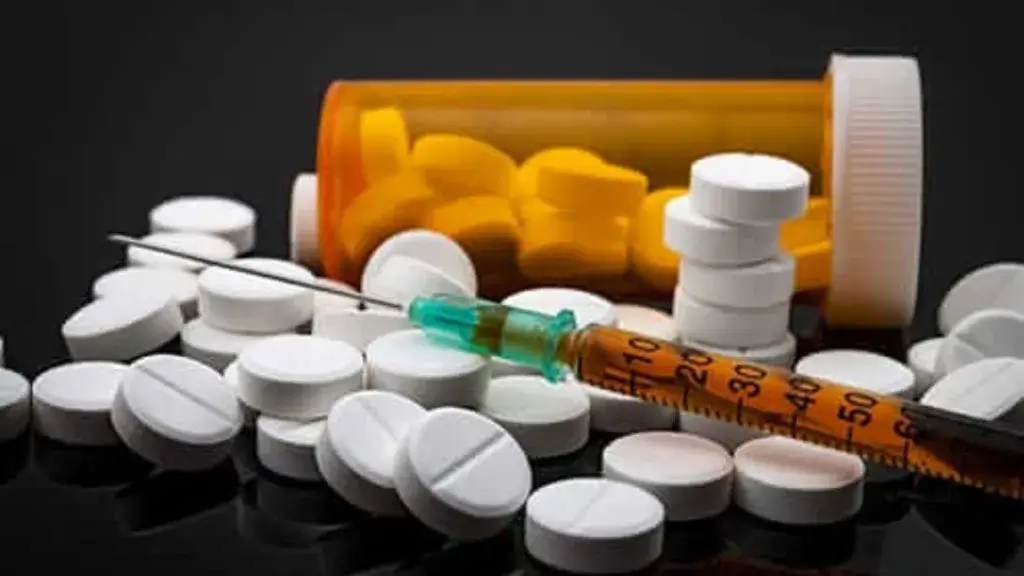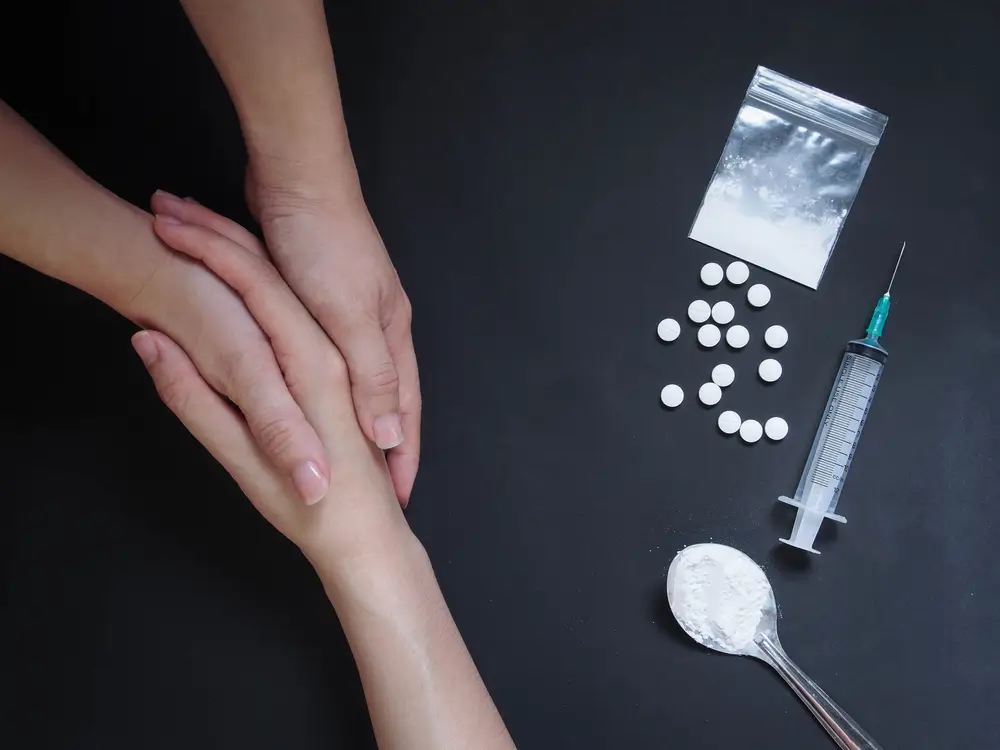Those suffering from opioid use disorder may experience distressful and uncomfortable withdrawal symptoms when they stop using. Although these symptoms are not life-threatening, they can still cause physical and psychological pain to the person affected. Because of the severity of withdrawal, individuals who are trying to quit using on their own could return to using just to avoid withdrawal.
Yes, a medically-assisted detox is highly recommended for those struggling with an opioid use disorder due to the severity of withdrawal symptoms and the likelihood of relapse.
Medical detoxification plans are organized, secure settings intended to aid those going through withdrawal. Physicians help patients deal with their manifestations by gradually weaning them from their drug of choice until they are no longer physically reliant on opioids. Continue reading to learn more about opioid withdrawal and the detox process in its entirety.
What Are Opioids?
Opioids refer to a classification of drugs that include illegal substances such as heroin, artificial opioids like fentanyl, and painkillers that can be acquired with a prescription from a doctor, such as oxycodone (OxyContin), hydrocodone (Vicodin), codeine, and morphine. These drugs are used to reduce pain and can be highly addictive. Some people who take opioids may become addicted to them, and have withdrawal symptoms when they discontinue usage. The misuse and abuse of opioids has become a major concern in public health, and the number of deaths due to overdoses related to opioids has risen in recent years.

Opioid Use Disorder Explained
Opioid use disorder is a condition where someone experiences difficulties or distress due to their use of opioids. This can include physical reliance on opioids, as well as the damaging effects on one’s personal and job-related life. Examples of opioid use disorder are an intense longing for opioids, the continued use of opioids in spite of negative repercussions, and the incapability to limit the use of opioids. Opioid use disorder can vary from slight to intense and can be handled with medication and psychotherapy.
Opioid Detox
Detoxification from opioids is a process in which a person with an opioid addiction stops taking the drug, enabling their body to eliminate the remaining opioids. This can be a challenging procedure since the body might encounter symptoms of withdrawal as it adapts to functioning without the medication. Opioid detox may be managed as an outpatient, where the person goes to a healthcare facility for treatment and assistance, or it may be done in an inpatient treatment program, in which the individual stays at the facility for a certain duration. The specific strategy of detox will depend on the individual’s needs and situation.
The amount of support and the plan of detoxification needed by a person will differ depending on the intensity of their addiction, but some common elements of opioid detox include medical supervision, teaching about nutrition, and other types of backing to assist the individual through the detoxification process. Therapy is normally offered in one-on-one or group sessions and can involve cognitive-behavioral therapy, contingency management, and other forms of therapy.
Opioid Withdrawal Timeline
The period of time it takes for opioid dependence to manifest can be dependent on the particular opioid and the levels of addiction as well as the intensity and the length of the withdrawal.
Withdrawal from heroin and other short-acting opioids can start as early as 8-12 hours after the last use, with the peak of symptoms generally occurring within 1-3 days. This can last up to a week. For short-acting opioids, like morphine, oxycodone, hydrocodone, and fentanyl, symptoms can appear within 8-24 hours and last up to 10 days. Long-acting opioids, such as methadone, extended-release morphine, oxycodone, hydrocodone, and fentanyl, can cause withdrawal to begin after 36 hours and last up to 14 days or more.
At the peak of withdrawal, symptoms may include:
- Fever
- Sweating
- Diarrhea
- Muscle aches
- Stomach pain
- Runny nose
- Elevated heart rate
- Insomnia
- Anxiety
- Vomiting
- Depression
Discomforting though they may be, the symptoms of withdrawing from opioids usually aren’t fatal. In certain circumstances, however, preexisting medical issues or complications due to taking drugs through injection may be life-threatening. Moreover, those who resume opioid use after a period of abstaining are at increased risk of overdosing. People going through detoxification on their own or without medical supervision may suffer from dehydration and heart failure due to excessive diarrhea and vomiting that goes untreated.

Medications Used During Opioid Detox
Medication-assisted treatment (MAT) is a type of approach that is commonly used to help people with opioid addiction. It uses medications to reduce withdrawal symptoms and cravings, allowing the person to focus on their recovery. Medications such as methadone, buprenorphine, and naltrexone can be prescribed to help with detox, allowing individuals to transition away from opioids in a safe and comfortable manner. These medications are most effective when combined with psychological support and counseling, creating an integrated approach to long-term recovery.
Methadone
Methadone is an opioid medication that works similarly to the drug that the person is addicted to, making it an effective treatment for withdrawal symptoms and cravings. It has a long duration of action, which helps in reducing the intensity of withdrawal effects and craving episodes as well as helping to maintain abstinence from the addictive substance. It is also a safe treatment option as it does not cause any euphoria or other psychoactive effects, thus reducing the chances of relapse.
Buprenorphine
Buprenorphine is a partial opioid agonist, meaning its effects on the brain are more moderate than that of full agonists like morphine or heroin. This provides advantages in terms of reducing the risk of abuse and dependence, as well as making it an effective treatment for withdrawal symptoms and cravings. It can be prescribed to help manage opioid addiction without leading to further harm.
Naltrexone
Naltrexone is an opioid antagonist, meaning it helps to counteract the effects of opioids on the brain. This medication can be beneficial to individuals who have completed detox, as it can work to prevent relapse. In fact, research has shown that when naltrexone is used in combination with other treatments, it often leads to improved outcomes for people in recovery. Thus, naltrexone can be a powerful tool in helping individuals achieve and maintain sobriety.
Clonidine
Clonidine is a non-opioid medication that has proven to be effective in reducing the symptoms of opioid withdrawal. Studies have shown that clonidine can reduce agitation, anxiety, muscle aches, and sweating in people going through opioid withdrawal. This medication is also beneficial for those trying to reduce their opioid use, as it can help lessen the intensity of withdrawal, making it easier to transition off opioids.
What Happens After Opioid Detox?
After completing opioid detox, rehabilitation is necessary to help an individual maintain sobriety and prevent relapse. Rehabilitation can take the form of outpatient treatment such as therapy or support groups, or a more intensive program such as inpatient rehab or a residential treatment program. It is important to consult a healthcare professional when deciding which type of treatment is best suited for each individual’s needs. The right combination of therapies and treatments tailored to an individual’s needs can enable them to work through the issues that led to their opioid use and set them on the path toward long-term recovery.
Why Opioid Detox Before Rehab is Important
Detoxing before entering rehab for an opioid use disorder is beneficial to an individual in a number of ways. It can diminish the harsh effects of withdrawal, which can be hard to bear. Additionally, it can help to even out a person’s physical and emotional health, which is necessary for a healthy lifestyle. It can also give an individual a better chance at succeeding in rehab, as they will be in a more favorable state of mind and body to take part in treatment.
Furthermore, it can help to reduce the probability of relapse, as the person will have a more secure platform for recovery once they finish detox. In conclusion, detox before rehab is a good idea as it creates an environment that is more favorable for a sustained recovery.

Opioid Detox in Los Angeles, CA
If you or someone close to you in the Los Angeles area is suffering from opioid dependency or opioid addiction, it is critical that you seek assistance immediately. At Launch Centers, we are devoted to providing assistance to those struggling with substance abuse. Our treatment plans are designed to empower individuals to take back control of their lives and reach their highest potential.
Our team of experts is here to help you win the battle against addiction, providing a range of educational, vocational, and healthcare services to lead you to a healthy and meaningful sober life.
If you need help and want to learn about the various services and therapies our facility provides, get in touch with a specialist from Launch Centers immediately. You’ll discover that you are closer to freedom from addiction than you know. Call us today.





